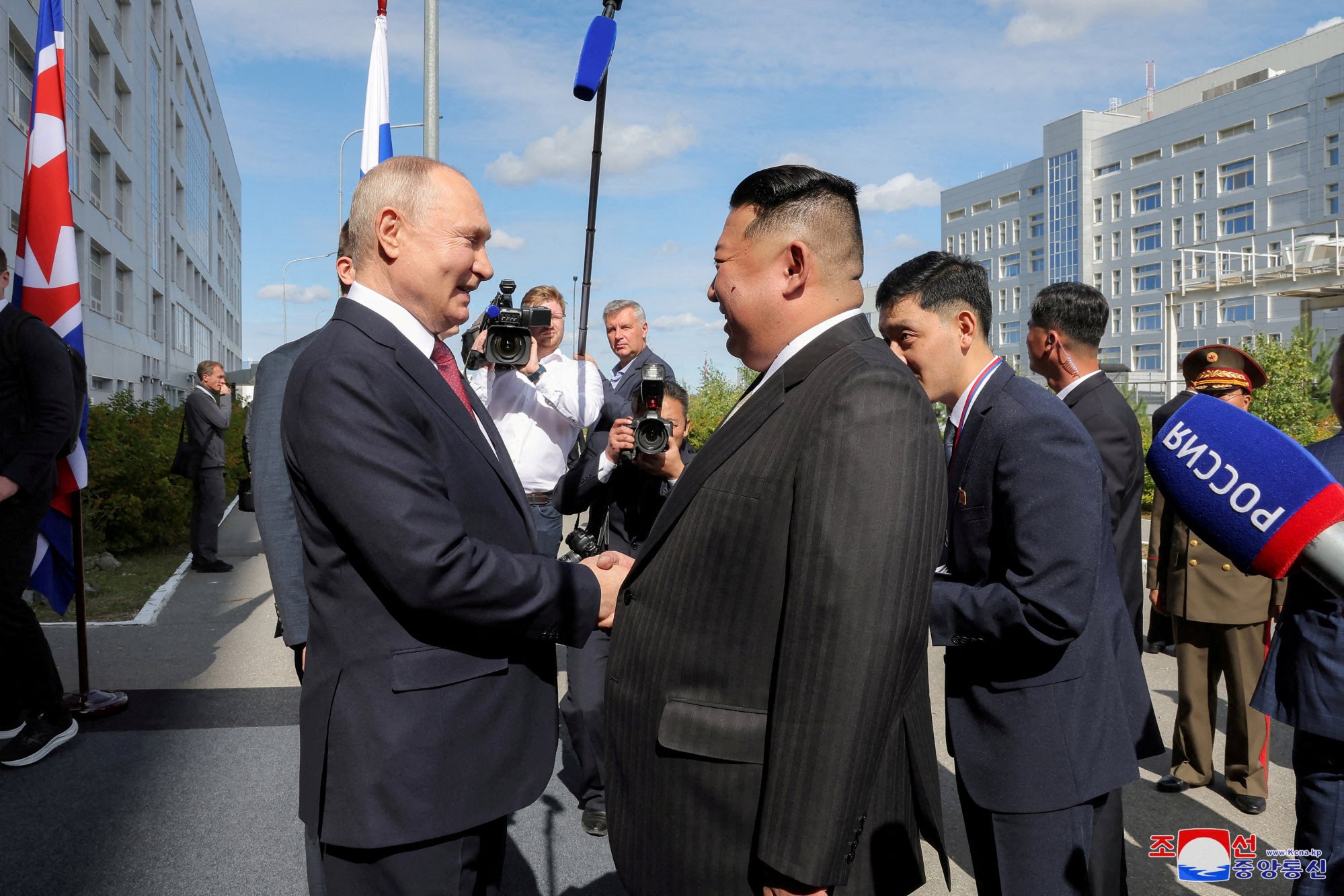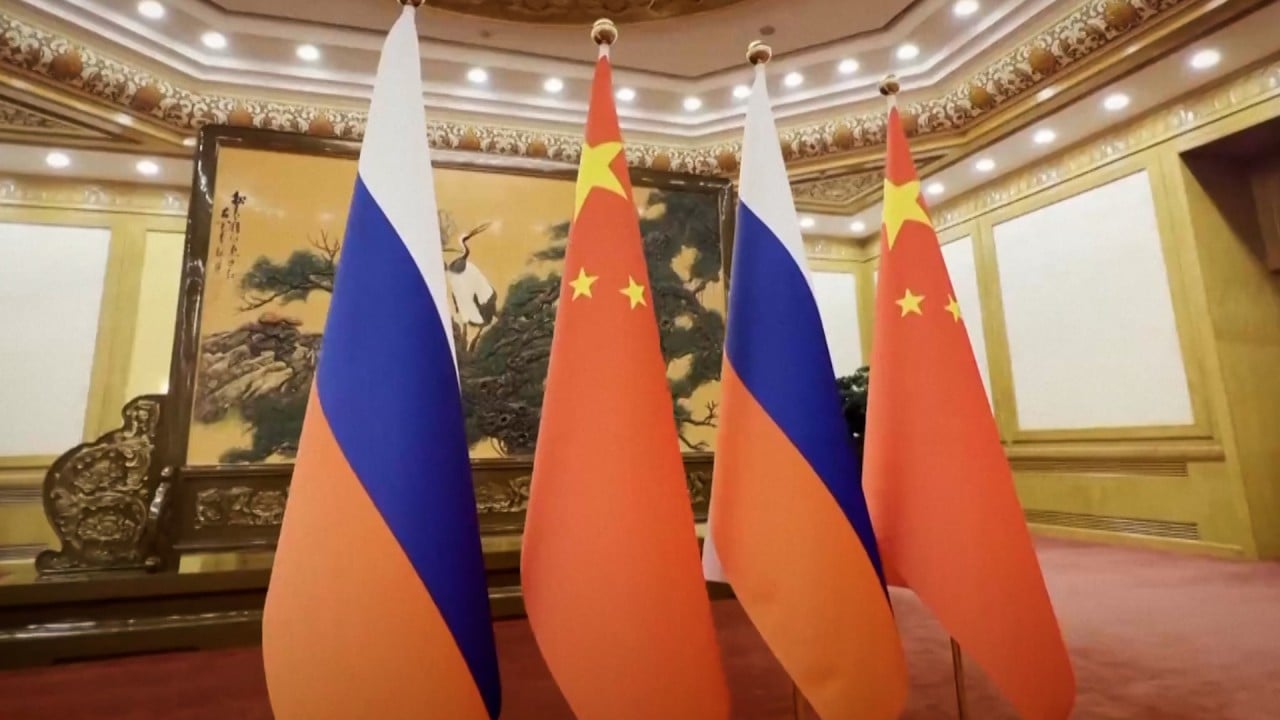Rising global tensions may have China rethinking Russia alliance: analysts
[ad_1]
With conflicts in the Middle East joining the war in Ukraine as strains on China’s foreign relations, Beijing might well be rethinking its alliance with Russia, analysts said on Tuesday.
“When you look at the Russia-China relationship, the ‘no limits’ partnership is starting to bump up against a few limits,” Rick Waters, until recently the State Department’s deputy assistant secretary for China and Taiwan, said in a discussion hosted by the National Committee on American Foreign Policy (NCAFP).
Concerning the Israel-Gaza conflict and Russia’s war against Ukraine, Waters, now managing director of Eurasia Group’s China practice, said, “I don’t think that China is an agent of chaos in either context – and they’re a bit nervous that the Russians are – and so I think on Gaza we’ve started to see some indications privately that the Chinese have weighed in with the Iranians”.
Indeed, China might be moving closer to the US positions on the wars in Ukraine and the Middle East as it seeks to rein in “chaos” that could undermine Beijing’s interests.
Time may also be running out for North Korea’s strengthening relationship with Russia, owing to “palpable discontent in Beijing” with Moscow providing some types of technology to Pyongyang, Waters said.
Russian President Vladimir Putin’s growing reliance on Pyongyang to supply artillery shells and other basic armaments for his Ukraine campaign has left some Chinese officials uneasy, he contended.
“There’s some palpable discontent in Beijing, at least among scholars and some of the lower-level officials, about this idea that Putin could be playing in their backyard,” Waters said. “I think there are a lot of fears that supporting North Korea with the types of technologies that are back flowing … in return for the weapons shipments could embolden the North Koreans next year.”

North Korean leader Kim Jong-un vowed support for Russia’s “just fight” during a summit with Putin in September, a pledge that the US warned could translate into a new source of ammunition for Moscow’s war in Ukraine.
While in Russia, Kim visited aviation facilities in the far eastern city of Komsomolsk-on-Amur, the Yuri Gagarin Aviation Plant and the Yakovlev plant, both units of United Aircraft Corporation, which has been sanctioned by the West.
Weeks later, US National Security Council spokesman John Kirby told reporters: “We assess that Pyongyang is seeking military assistance from Russia including fighter aircraft, surface-to-air missiles, armoured vehicles, ballistic missile production equipment, or other materials and other advanced technologies.”
Susan Thornton, a former US acting assistant secretary of state for East Asian and Pacific affairs, agreed with Waters that Beijing was likely unwilling to see the conflicts in Ukraine and the Middle East spread beyond their current parameters.
Xi-Biden summit hit pause on troubled US-China relations: analysts
Xi-Biden summit hit pause on troubled US-China relations: analysts
Summing up the leaders’ approach to Taiwan at their meeting, US Treasury Secretary Janet Yellen told CNBC on Monday: “President Xi did express the view that it’s important for Taiwan and mainland China to unify. He certainly expressed the desire to have that occur by peaceful means.”
“But President Biden said our policy remains unchanged from what it’s always been with respect to Taiwan,” she added.
Thornton said that as they take in the conflicts in the Middle East and Ukraine, and as they discuss the situations in Taiwan and North Korea, “the Chinese are more probably motivated to try to tamp down some of these tensions”.
Beijing is “always seeking order and control”, she noted. “When they look out at the world, they will be motivated to try to make sure that things aren’t escalating.
Chinese officials from Xi on down “will be trying to manage problems in a way that gives them more space for dealing with some of their domestic issues”, she added, including the “considerable” headwinds the Chinese economy faces.
[ad_2]
Source link






